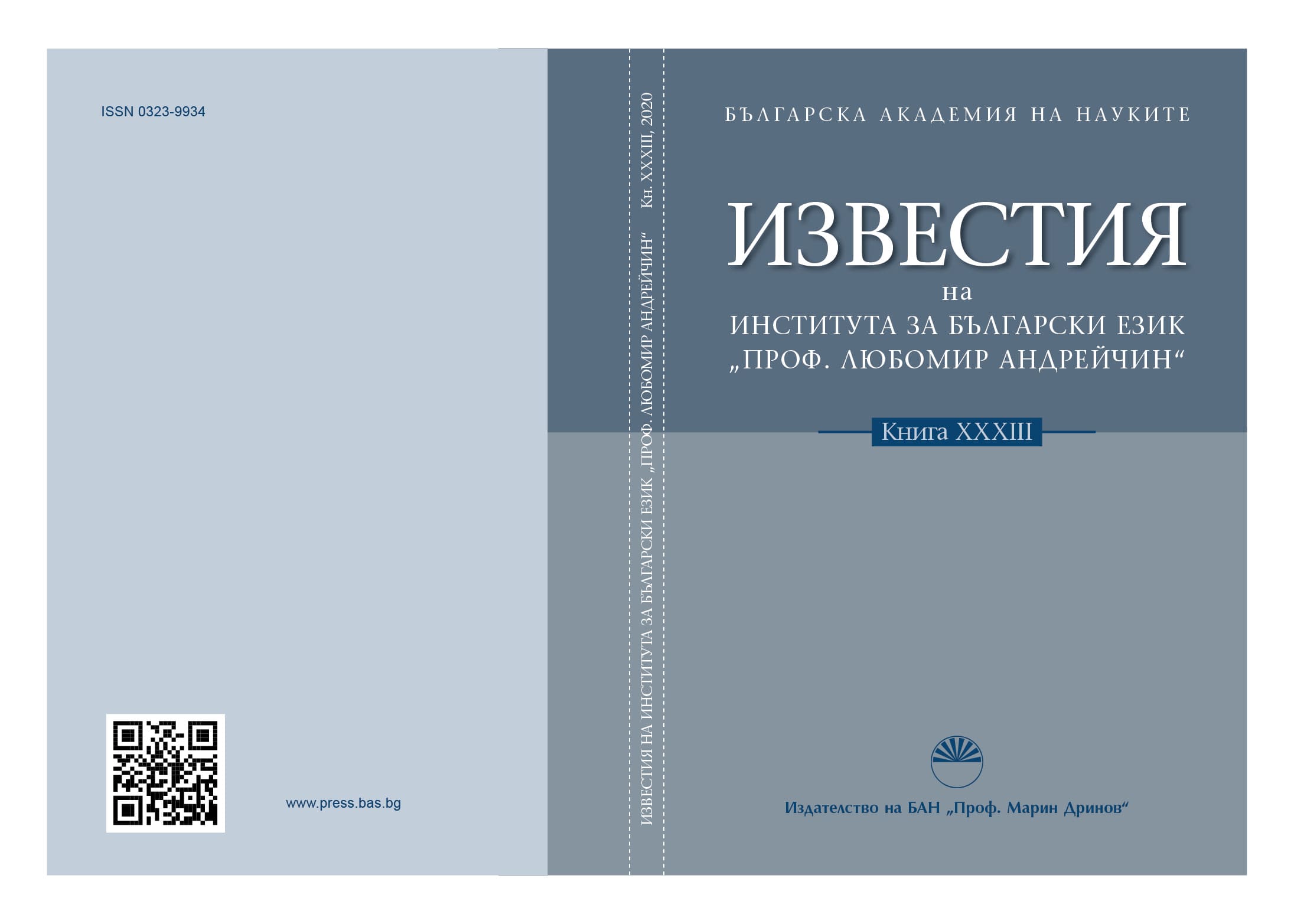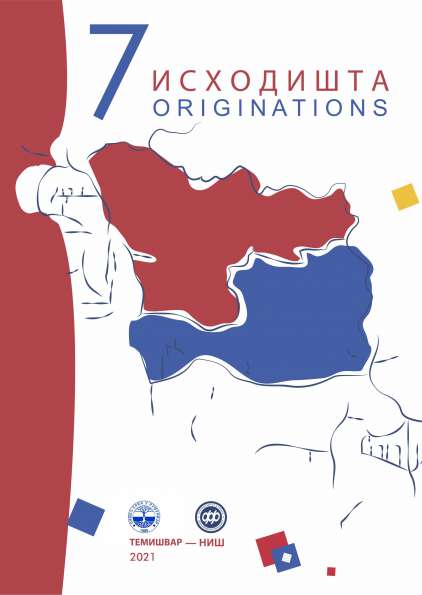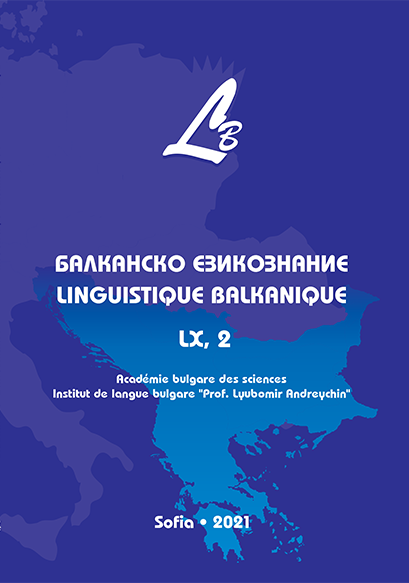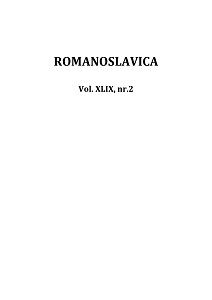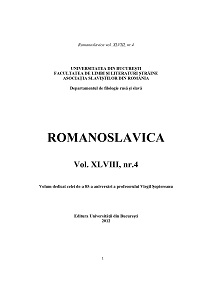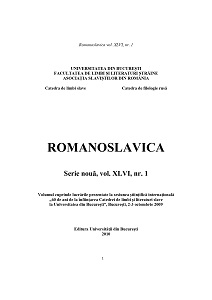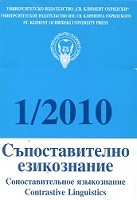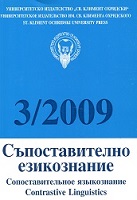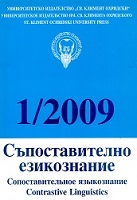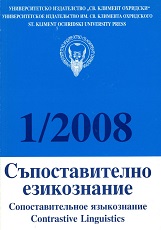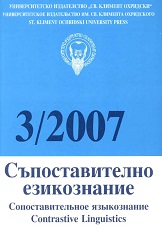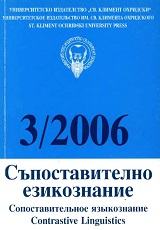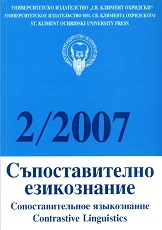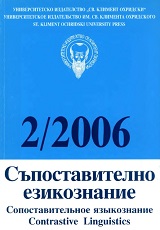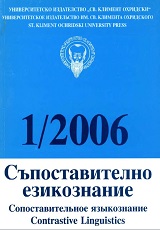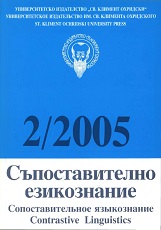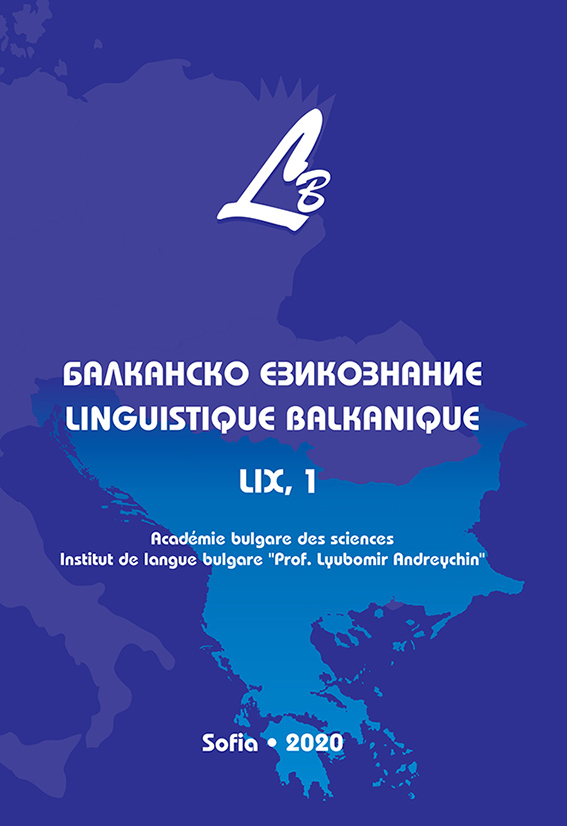
Болгарские диалектизмы как источник пополнения славянских этимологических гнезд
Bulgarian dialect words from the Bulgarian etymological dictionary will be considered. Taking into account new lexicographic sources and new etymological studies on Slavic vocabulary, the author offers clarifications and additions to the decisions made in the dictionary: зачебрсвам, кокрдав, конàдя, развражувам се, прèвразник, нарè(д)вам, нарㆌвам, рㆌля, нарỳди се, жȇлдè ме, скорèц, прочурвам (се), слàвей). Etymological analysis of the Bulgarian vocabulary helps identify the scope of ancient word-formation models, restore word-formation and semantic connections of Bulgarian dialect words in the Slavic linguistic area.
More...
